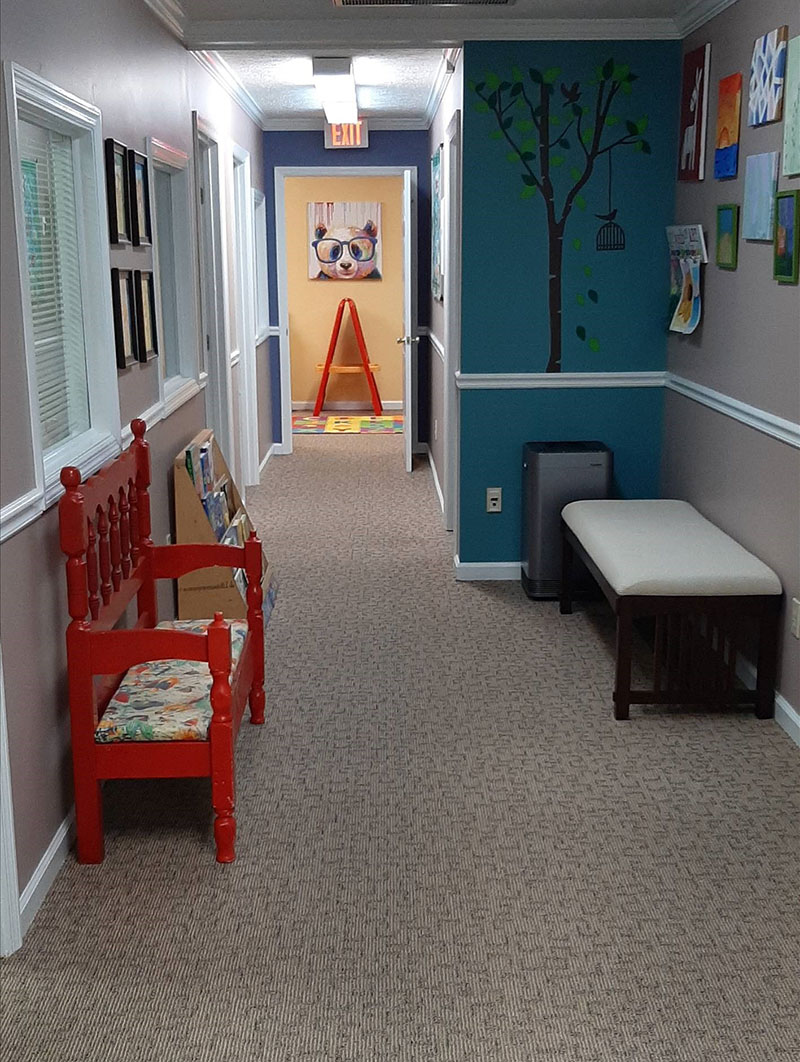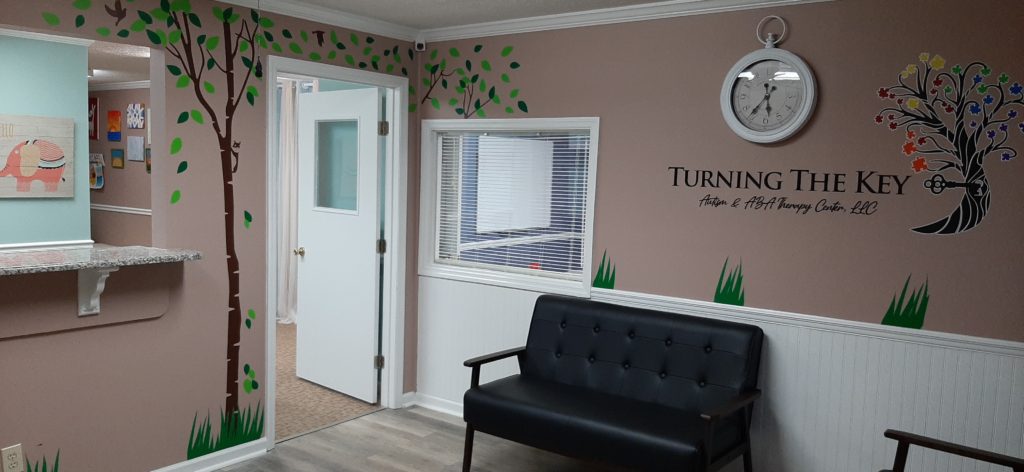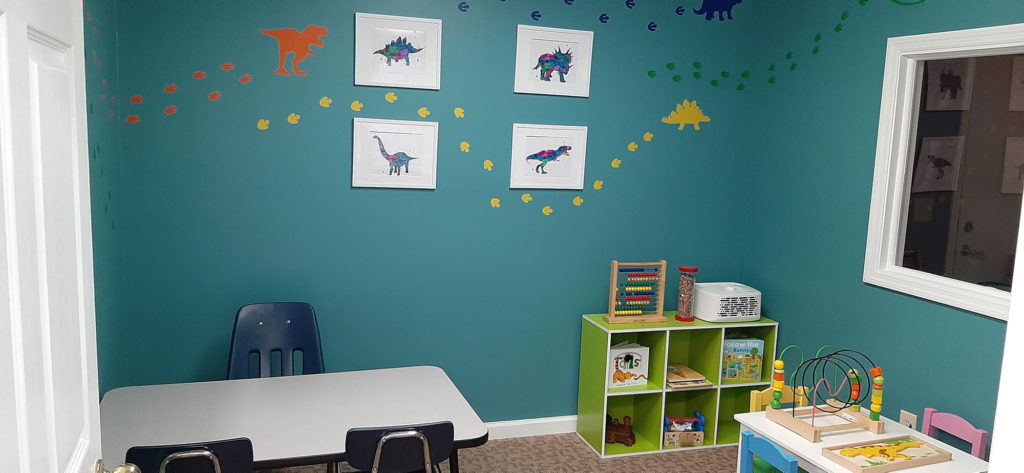
Our Mission
To provide effective ABA services to children and families in rural communities so that regardless of where they live, every child has an opportunity to “turn the key” and unlock their full potential.
Center-Based
Therapy is held in a structured environment so that your child can focus on learning.
Individualized
Each child will be assessed so that we can create a customized therapy plan.
Insurance Accepted
We accept most major insurance companies and will help you navigate payment options.
What is ABA?
Applied Behavioral Analysis (ABA) is an evidence-based approach to treating individuals with Autism Spectrum Disorder (ASD) and related developmental disorders. Research has shown that ABA therapy is one of the most effective treatments for children with autism. ABA is endorsed by the U.S. Surgeon General and the CDC. ABA therapy aims to improve social, communication, language, and daily living skills, as well as reduce problematic behavior. Positive reinforcement, discrete trial training (breaking down a task into small achievable pieces), and altering antecedent stimuli are some of the methods utilized within ABA therapy at Turning the Key. In general, ABA therapy works by reinforcing and rewarding helpful behaviors that improve learning and communication skills.
Why Center-based therapy?
Center-based services have been shown to be superior to home-based services for mastery of program targets and rate of mastery (Dixon, Burns, Granpeesheh, Armarasinghe, Powell, & Linsteady, 2017). It also provides your child with a structured environment in which he or she learns a variety of important skills. If your child will enter school in the near future, this approach can help him or her adjust to the routine of going to a set location to learn, as well as gain experience interacting and learning from others. A center-based learning environment can also limit distractions and provide private therapy rooms to work on individual targets effectively.
At Turning the Key, your child’s day will be structured to provide many learning opportunities that are both planned and naturally occurring. This will allow your child the ability to acquire and practice skills in both unstructured and structured situations to help promote generalization of skills they learn with us into their everyday lives. Parent training and teacher training (as applicable) will also be provided in order to help with transferring skills into other environments and to help ensure everyone across settings are on the same page.
What will it look like?
Effective ASD treatment looks different for every child, but it will encompass a research-based approach that is based on the principles of behavior. At Turning the Key, we do not utilize a cookie cutter/one size fits all approach. Instead, each child will go through an in-depth assessment conducted by a Board-Certified Behavioral Analyst (BCBA) to determine their current skill set and what skills might be improved upon. Parental input is also an integral part of the assessment process that helps to develop your child’s individualized therapy plan. At Turning the Key, each program is written to meet the individual needs of the child and is driven by data; therefore, success can be measured, and programming can be adjusted if the treatment is not effective. Your child will receive 1:1 direct services (1 therapist working with 1 child) that follows the treatment plan developed by a BCBA. Therapy programs at Turning the Key also involve ABA therapists that are often referred to as Paraprofessionals or Registered Behavior Technicians (RBTs). Our behavioral therapists are trained and supervised on-site by a BCBA; therefore, treatment plans and goals can be changed quickly if needed based upon observations, data, your child’s needs, and family input.

What is the end goal?
The goal is to improve meaningful behavior, so that the child can function in real-life situations occurring across settings in an appropriate and healthy manner. It is hoped that the gains learned through ABA therapy will last throughout adulthood for the individual. Specific goals will depend on your child’s individual needs; however, ABA often results in children:
Social Interaction
- Showing more interest in people around them
- Communicating with other people more effectively
- Learning to ask for things clearly (i.e. a break, a certain toy, etc.)
Physical Behavior
- Having more focus at school and in other learning settings
- Reducing or stopping self-harming behaviors
- Having fewer tantrums or other emotional outbursts
- Increase motor skills
Other Services
- Social Skills Groups
- School Consultations and Trainings
- IEP Development and Support


